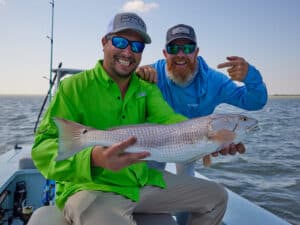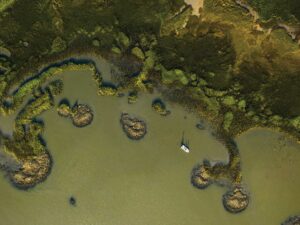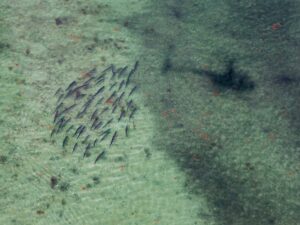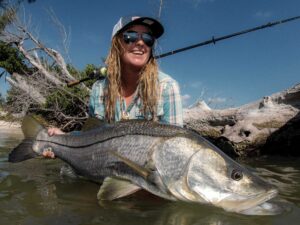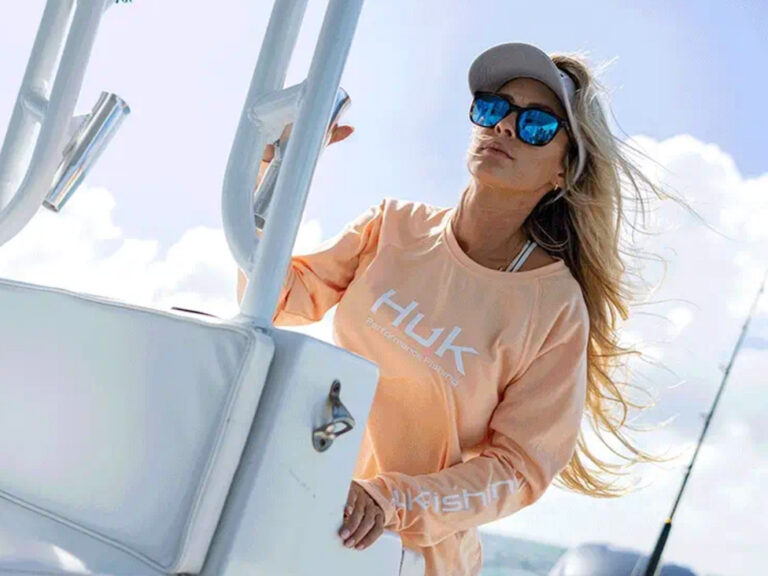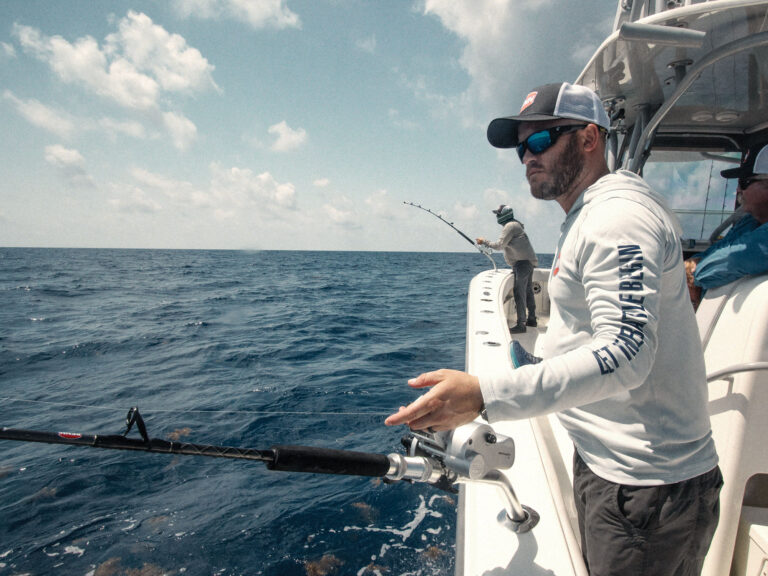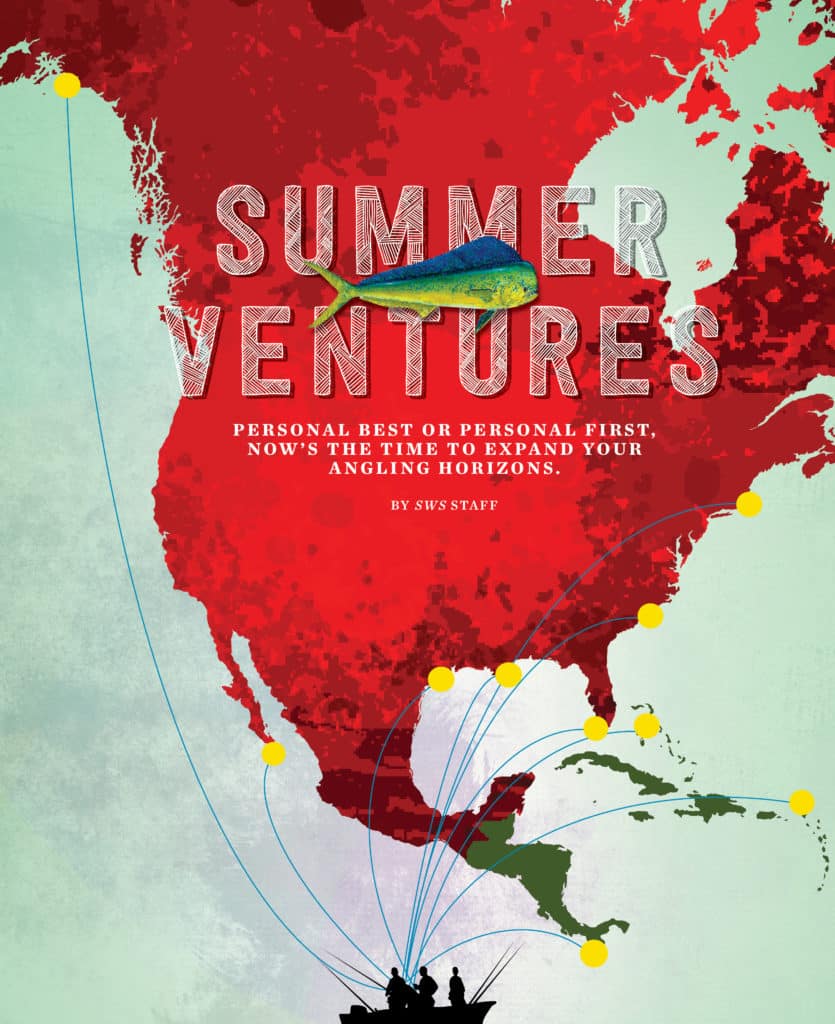
Summer is a great time for exploration. Whether you’re planning a dedicated fishing expedition or simply find yourself far from home with friends or family, there’s no shortage of new waters and new challenges to discover. With an eye toward large size and high numbers of fish, or new species to add to your lifetime checklist, we’ve assembled a selection of opportunities well worth working into your travel itinerary this season.
Texas
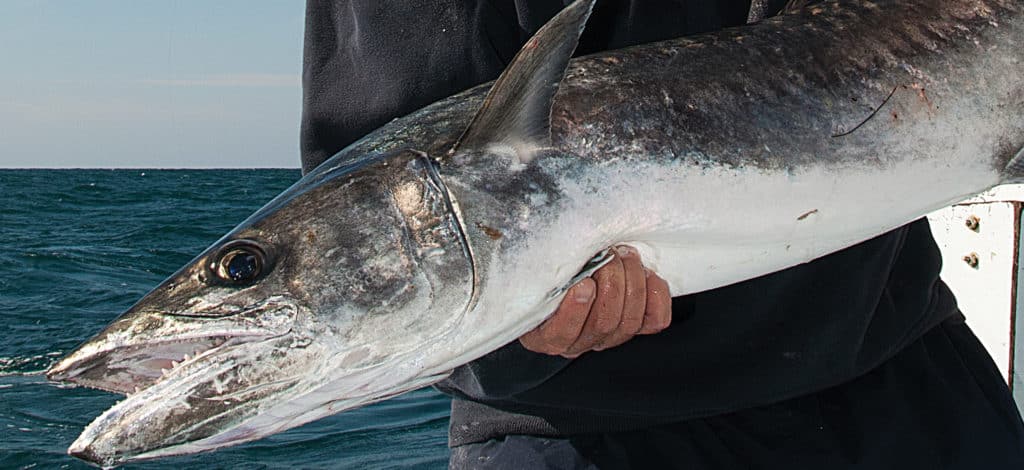
Kingfish
When it comes to kingfish action, very few places rival the Lone Star State during the summer. Smokers in the 30- to 50-pound class hunt and forage around oil and gas platforms and anchored buoys offshore, while 10- to 20-pounders feast on baitfish congregating in 20 to 40 feet of water, near jetties and marker buoys outside the mouth of the passes. Charter options abound on the Texas coast, with captains targeting kings out of Galveston, Port O’Connor, Port Aransas and other towns. Trolling with 30- to 50-pound conventional tackle is most popular, but light tackle often comes into play. Trolling surface swimmers and casting topwater plugs have both taken many big fish over the years, often after spectacular strikes from kings skyrocketing out of the water in hot pursuit.
Louisiana
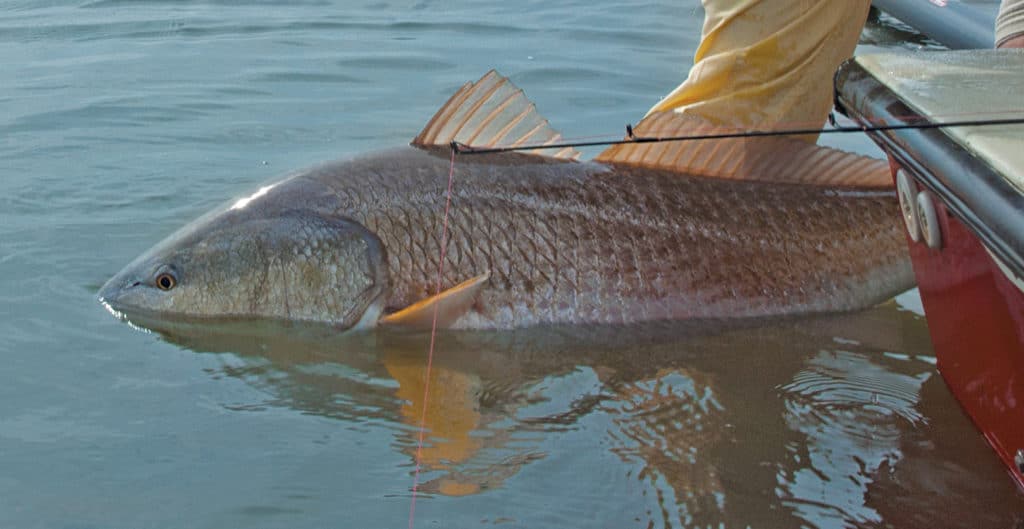
Redfish
When other redfish destinations suffer summer doldrums, Louisiana turns on. Redfish country stretches south of New Orleans for 75 miles, to Venice. Fish camps at Hopedale, Port Sulphur and Empire, all the way to the Sportsman’s Lodge in Venice, are set up for single or multi-day trips. From marinas and fish camps at any of these locations, it’s a short run to the marshes, where spawning-size reds of 10 to 16 pounds congregate in schools often holding 200 to 300 fish. It’s a great opportunity to break out topwater plugs, along with the regular soft plastics, spinnerbaits and gold spoons. For bigger fish, venture out onto the beaches and open water, where you’ll find bulls well over the 20-pound mark. As a bonus, some guides will pick you up in New Orleans for a day’s fishing.
Florida Keys
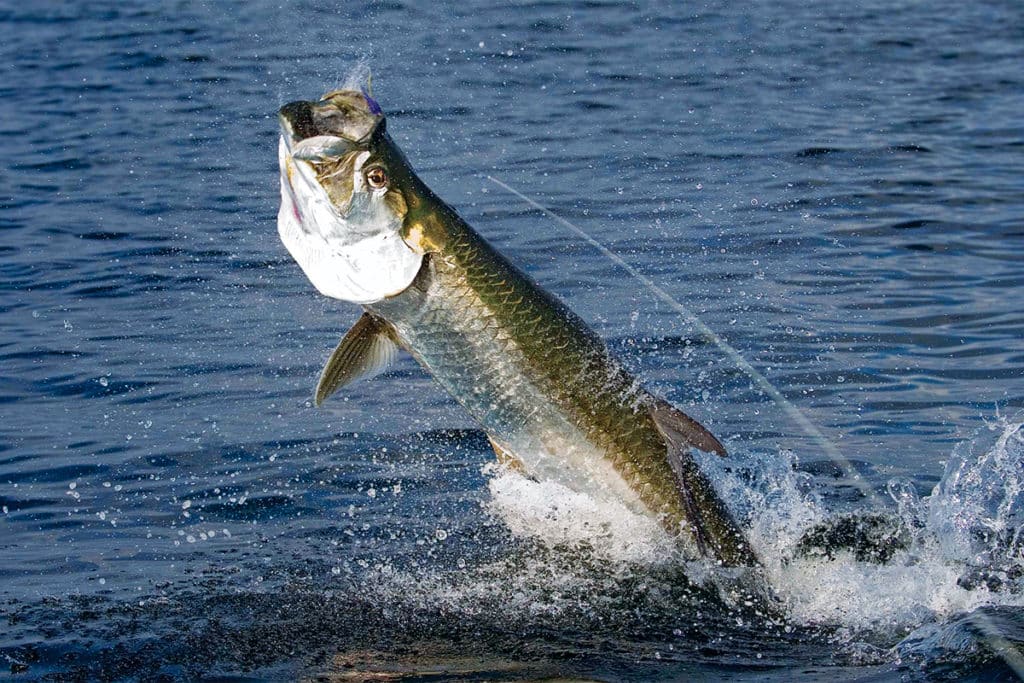
Tarpon
When the annual tarpon migration reaches the Florida Keys, people drop whatever they’re doing and go fishing. Beginning in April, tarpon show up in amazing numbers and stick around a couple of months before moving on.You can catch them many different ways, but live-baiting and fly-fishing are the most popular. In the early part of the season, when the tarpon follow the mullet schools into the area, live-baiters soak mullet. But later in the season, many switch to small live crabs, especially during falling tides. These critters hatch in the bay and flow out with the current, and hungry tarpon wait to intercept them. For the most part, fly anglers target fish in different areas than live-baiters, typically working the backcountry waters of Florida Bay and the Lower Keys basins or oceanside flats over white, sandy bottom. The two approaches require differing tactics, but given the right conditions, both can produce outstanding results.
Boston
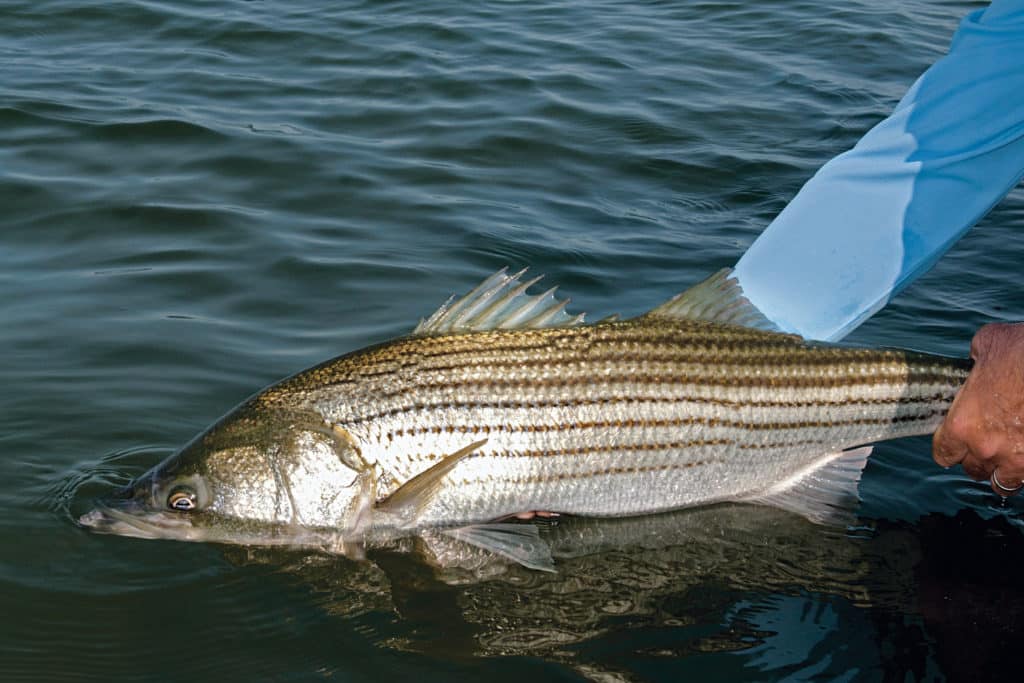
Striped Bass
England, and once the fish work their way north, the action out of Boston and the surrounding areas can be nothing short of spectacular. Some of the best fishing extends from Boston Harbor on out to the nearby islands and on to Stellwagen Bank. For a multi-day excursion, bear in mind the waters off Cape Cod have a reputation for producing genuine trophies so reliably that guides routinely advertise they guarantee big fish. There’s ample opportunity for light-tackle and fly anglers to sight-fish in clear, shallow waters. Monomoy Island is renowned for flats fishing, but you can chase bass in the shallows out of Chatham as well. Whether it’s run-and-gun, targeting fish feeding along the beaches or sight-fishing clear, skinny water in the Cape Cod area, there are fishing styles and stripers for every angler.
Cabo San Lucas, Mexico
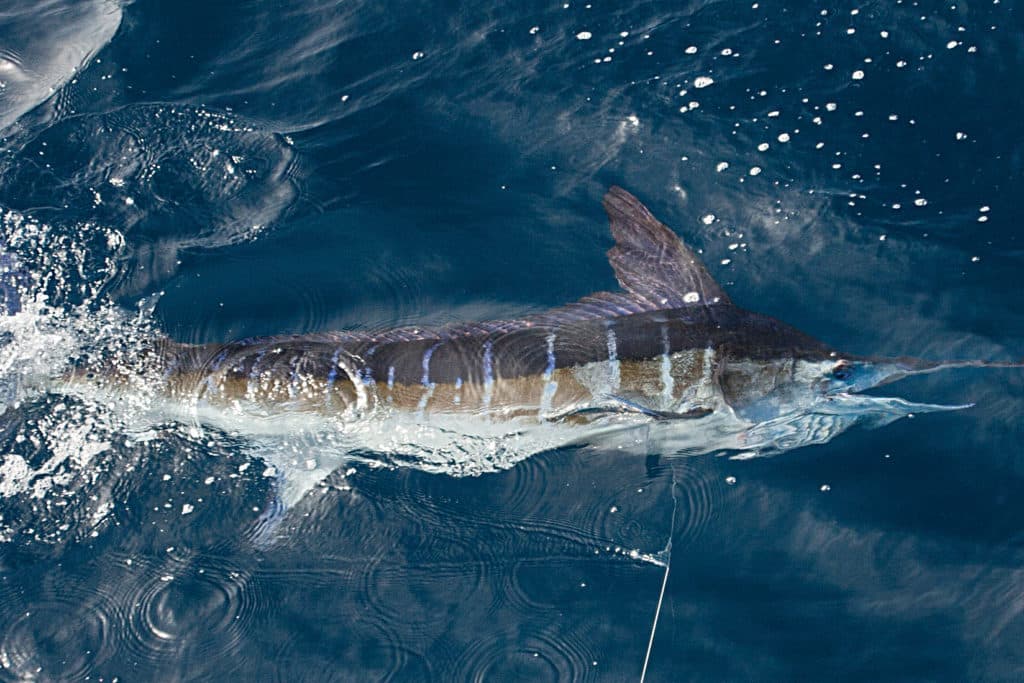
Striped Marlin
To paraphrase an experienced Cabo angler, “If you had to catch a billfish by next Thursday, this is the place to do it.” Striped marlin fishing in Cabo San Lucas, on the tip of the Baja Peninsula, casts marlin fishing in an entirely different light. A dozen hookups a day is not unusual, and a determined crew might well tally over 100 striped marlin in a day when the bite is hot.
Year-round, there’s no better destination for stripes, but peak action kicks off in May and lasts well into fall and winter. From just off the beach at Cabo Falso on north to Golden Gate Bank and out west to San Jaime Bank, dramatic underwater topography and abundant bait offer prime grounds. Cabo boasts top-notch services and plenty to do, but most of all, it’s one place where catching marlin is routine.
Guatemala
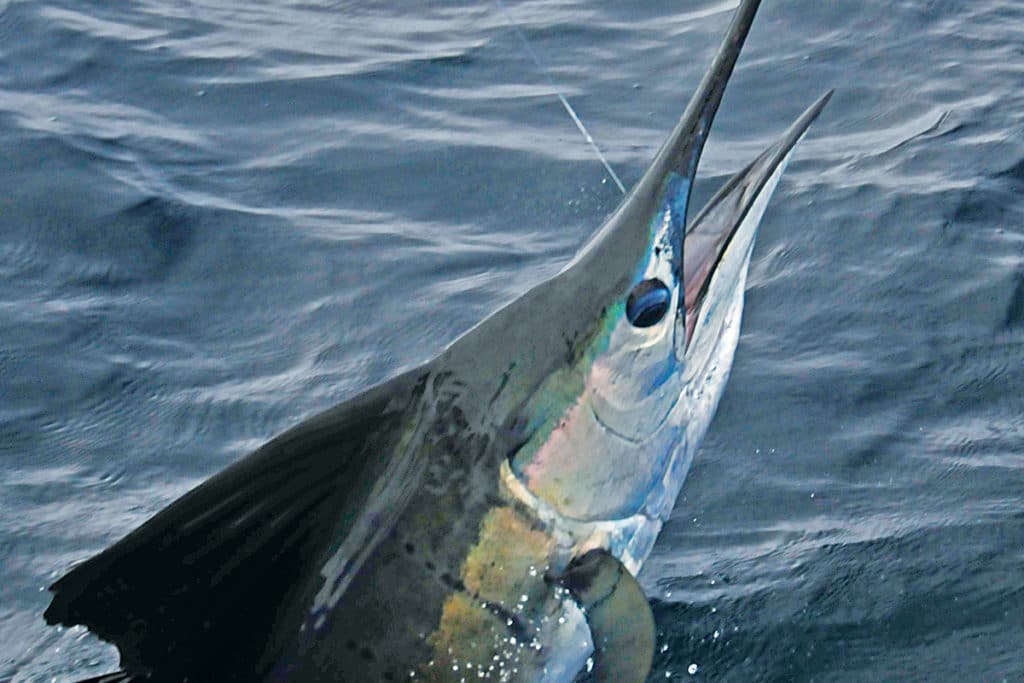
Sailfish
The legend of Guatemala as a sailfish hot spot continues to grow. Boats in the fleet operating from Puerto Quetzal consistently tally several dozen releases a day. No other place in the world can make that claim. On the best days, you might have shots at 50 sails; anglers don’t encounter such a hot bite every day, but it happens here way more often than anywhere else. With such an abundance of sailfish, Guatemala also offers the chance to hone your skills with fly and light tackle. After you’ve caught a few on conventional 30- or 20-pound gear, drop down to 8 or 6, or pick up a fly rod.
St. Thomas, U.S. Virgin Islands
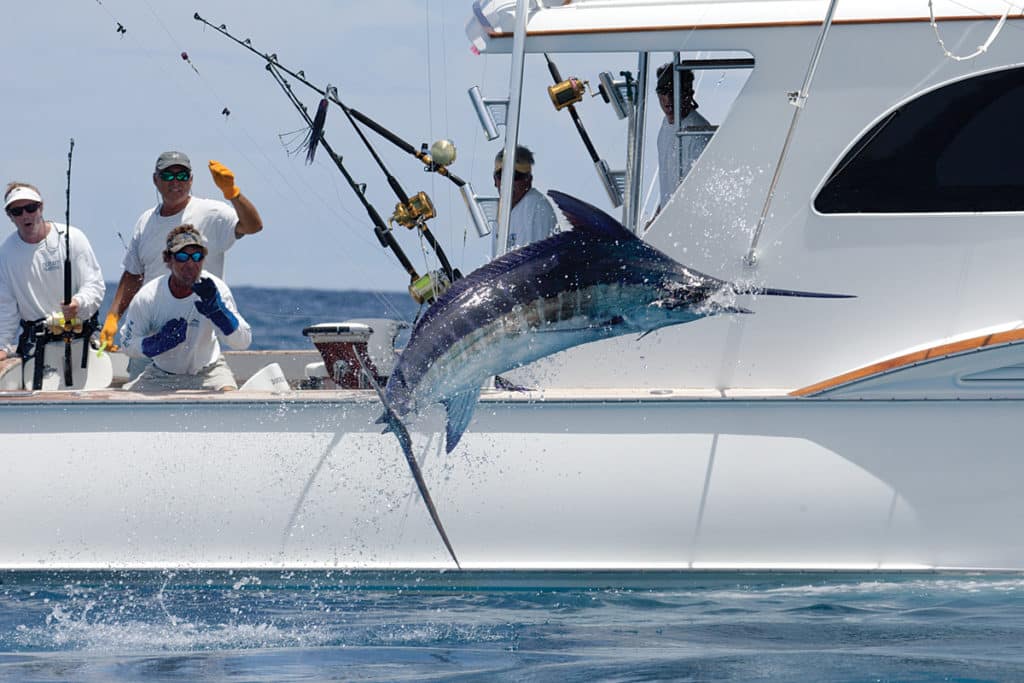
Blue Marlin
Encompassing only 32 square miles, the small island of St. Thomas is known worldwide for its incredible blue marlin fishing. For decades, legendary big-gamers have made this picturesque island a regular summer stop, and with good reason: The numbers and the size of the blues — including granders — that patrol the fabled North Drop and the Puerto Rican Trench, where depths plummet over 27,000 feet, make for some exciting, action-packed fishing. St. Thomas is part of the U.S. Virgin Islands, so naturally its population speaks English. And thanks to its immediate proximity to Puerto Rico, a major airline hub in the Caribbean, arrangements for travel from the States are simple. Because this is a popular resort destination and the fleet isn’t particularly large, you’ll want to book your fishing well in advance.
Bahamas
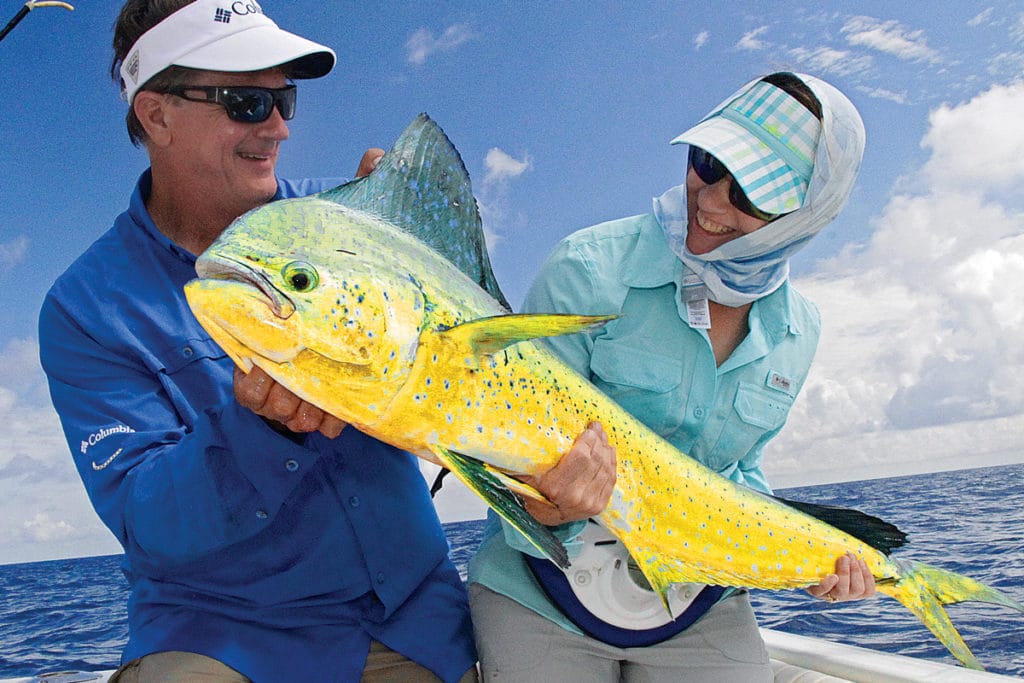
Dolphin
Many great opportunities for catching large dolphin exist in the islands nation in spring and summer, but several spots traditionally provide the most consistent action. The deep waters of The Pocket, off Chub Cay in the Berry Islands, attract hordes of big dolphin each year when they prey on large schools of baitfish trapped in the area by strong currents. Some real trophy fish show up here during the warmer months. Like The Pocket, the waters of Exuma Sound east of the Exuma chain also attract many big dolphin. You can fish the Sound from lots of different points, including Eleuthera, Cat Island, and the Exumas themselves, and all offer exciting action with lots of mature bulls and cows. Finally, the Abaco chain — with famous offshore spots like the Great Abaco Canyon, Hole-in-the-Wall and The Elbow — also offers excellent chances to tangle with dolphin, along with lots of well-established amenities like marinas, hotels and restaurants, in addition to airports that make getting in and out easy.
Alaska
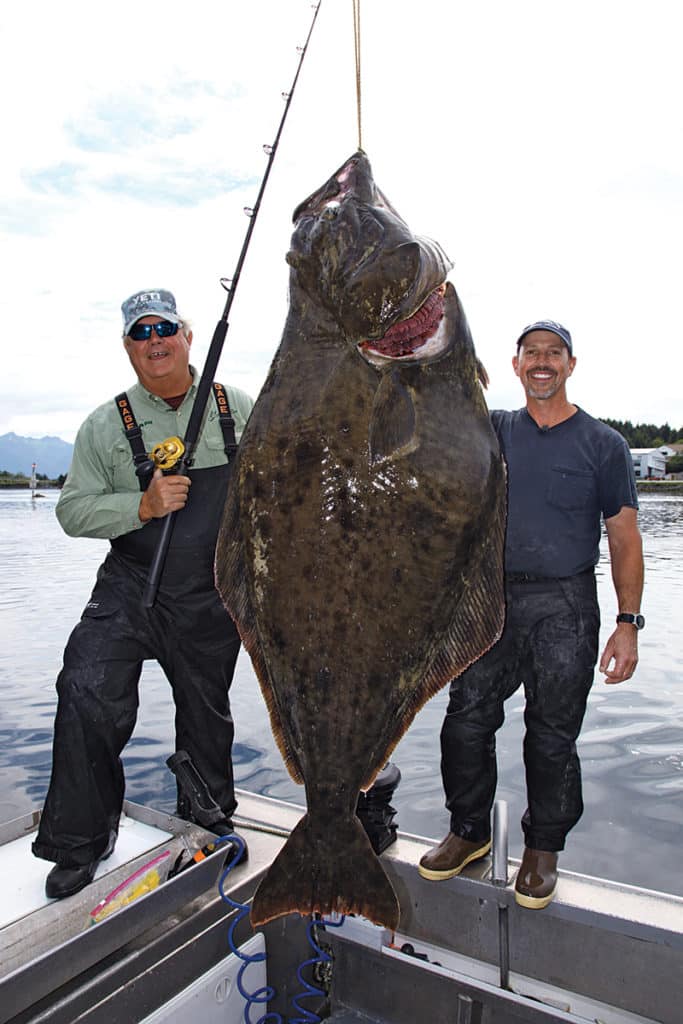
Halibut
If you want to target this largest of the flatfish, Alaska is second to none, and three spots arguably offer your best chances. In Sitka, in Alaska’s panhandle (kingfishercharters.co), halibut of over 300 pounds aren’t uncommon, and there are lots of smaller fish as well. Trophies are what most people seek, but 100-pounders seem to be everywhere here. If numbers matter to you, two places on the Kenai Peninsula offer exceptional action: Seward and Homer. Located on the southern side of the Kenai, amid several large glaciers, Seward is a popular tourist stop.
North Carolina
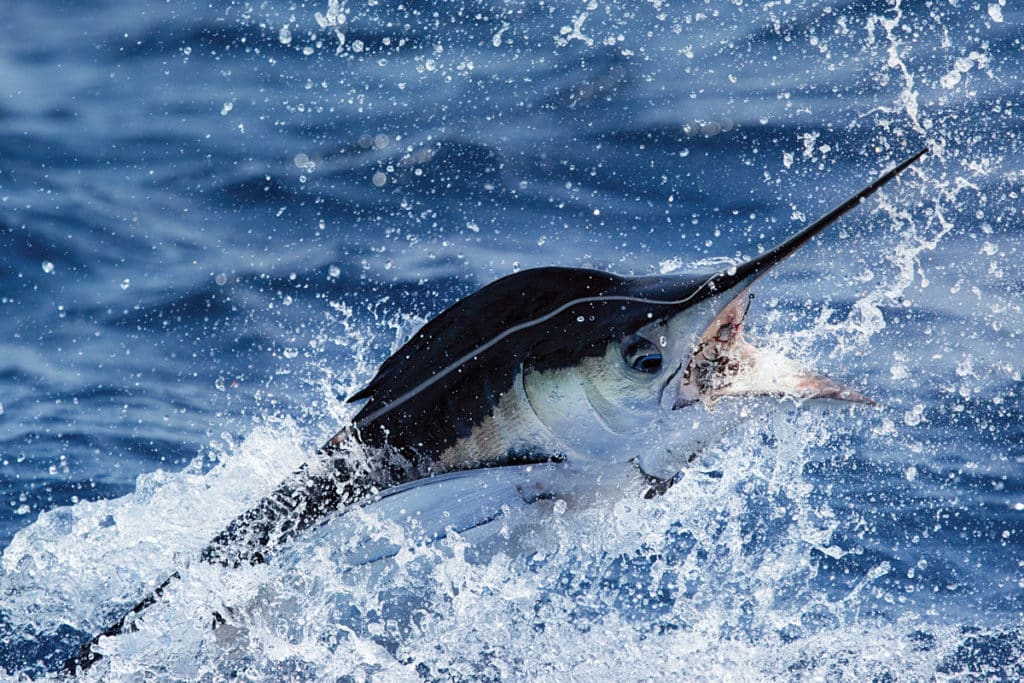
White Marlin
With water temperatures on the rise and baitfish migrating through the area during the warmer months, white marlin stage off the coast of North Carolina’s Outer Banks in numbers reminiscent of those encountered abroad in more exotic destinations. Boats out of Hatteras and Oregon Inlet often return to port flying multiple release flags this time of year, and it’s not uncommon for some to tally a dozen or more white marlin hookups when the bite is on. With the Gulf Stream only 30 to 40 miles from shore, the baits hit the water an hour after leaving the dock, so anglers get a full day of fishing when they book a charter. Fish nearing the 100-pound mark are possible, but most whites in the mid-Atlantic fall in the 40- to 70-pound range, and Outer Banks captains typically opt for 30-pound gear so anglers can fully enjoy the aerial displays of this exciting billfish species.

